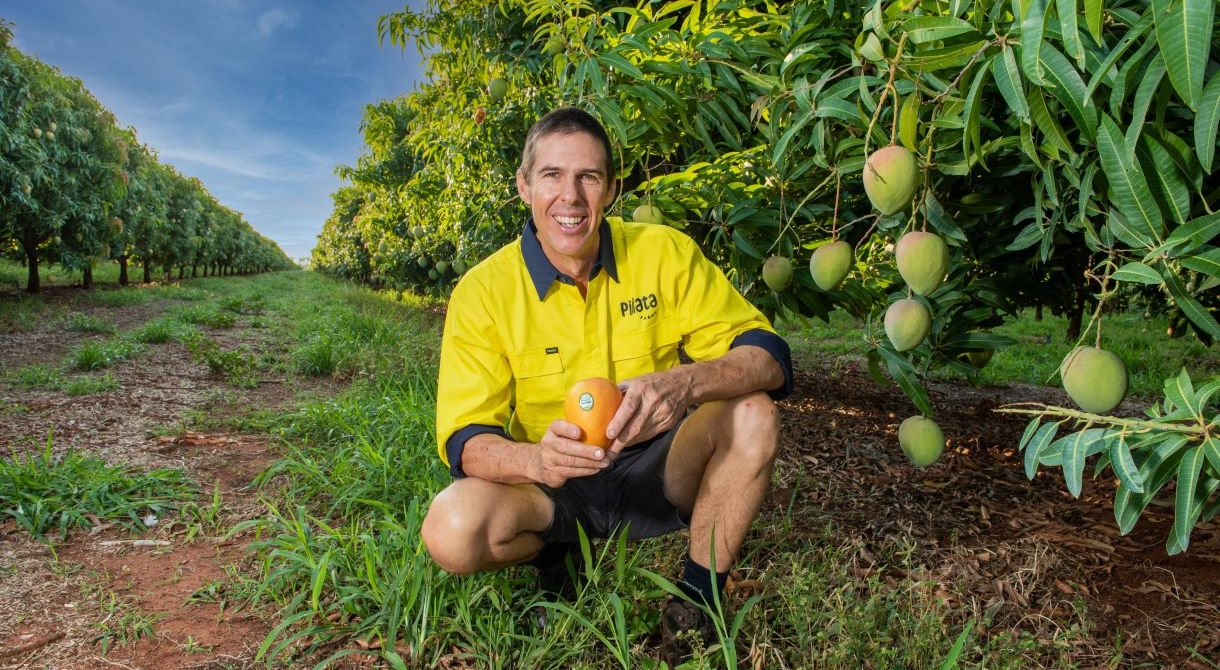Honey Gold mangoes from the Northern Territory have started appearing on supermarket shelves with the annual harvest at Piñata Farms underway.

General manager tropicals Stephen Scurr said while volume would be down on previous years due to stop-start cool snaps at the key growing regions of Darwin, Katherine and Mataranka during winter, quality would be excellent.
“A reasonable wet season last summer and dry conditions leading into the harvest have been advantageous for fruit quality. Consumers can expect flavoursome, sweet fruit with that amazing Honey Gold flavour that Australians love, all through summer,” he said.
“We had a cool May in the Territory, but it was over too quickly. June and July were warmer than normal, and then we had a brief cool snap in August and September. This resulted in a select harvest of light volumes in early November, with the main harvest from mid-November running about two weeks late,” he said.
“Our Katherine farm will produce the bulk of our Territory crop this season, then our third-party growers will start their harvests progressively.”
Pacific Australia Labour Mobility (PALM) seasonal workers from Vanuatu and Timor Leste will harvest the crop. Piñata Farms introduced night picking in 2014 to optimise fruit quality.
“All Northern Territory fruit is harvested at night when the fruit has had time to fully rehydrate after the heat of the day which results in better shelf life. It's much better for our staff too as the temperature drops from the mid-40s to the mid-20s and eliminates the risk of sunburn and heat stroke," Mr Scurr said.
The Queensland harvest was set to begin in late November-early December which enabled Piñata Farms to maintain a consistent supply throughout summer, Mr Scurr said.
“Queensland growers from Bowen north are also expecting a reduced crop while growers from Bowen south are expecting a nearly ‘normal’ season.
“Because of the late start for most mango growers, consumers will see less fruit leading up to Christmas and plenty of fruit in all varieties around in January.”
Piñata Farms has a network of some 30 third-party growers producing Honey Gold mangoes in the Northern Territory, Queensland, New South Wales, Victoria and Western Australia, with Queensland growers producing most of the crop. In total, Honey Gold mango production is spread over about 570 hectares.
Consumers go back for Honey Golds
Honey Gold mangoes will be available at all leading supermarkets nationally from December to March.
Piñata Farms holds the breeding rights to the premium variety which was bred by accident near Rockhampton, Central Queensland in 1991. It is the result of a Kensington Pride off-type pollinated by an unknown variety. Averaging 500-600g, it is one of the largest mangoes available and has a yellow-orange, glossy skin and intense, punchy, distinctive flavour. Honey Gold mangoes also have a small seed and smooth, fibreless, orange flesh.
Sales and marketing manager Rebecca Scurr said consumer feedback indicated that once tried, Honey Golds were a repeat purchase.
“Honey Golds are one of Australia’s favourite mangoes. Since we first launched the variety in 2009, many consumers have stayed on the Honey Gold journey and eagerly anticipate mango season every summer,” she said.
